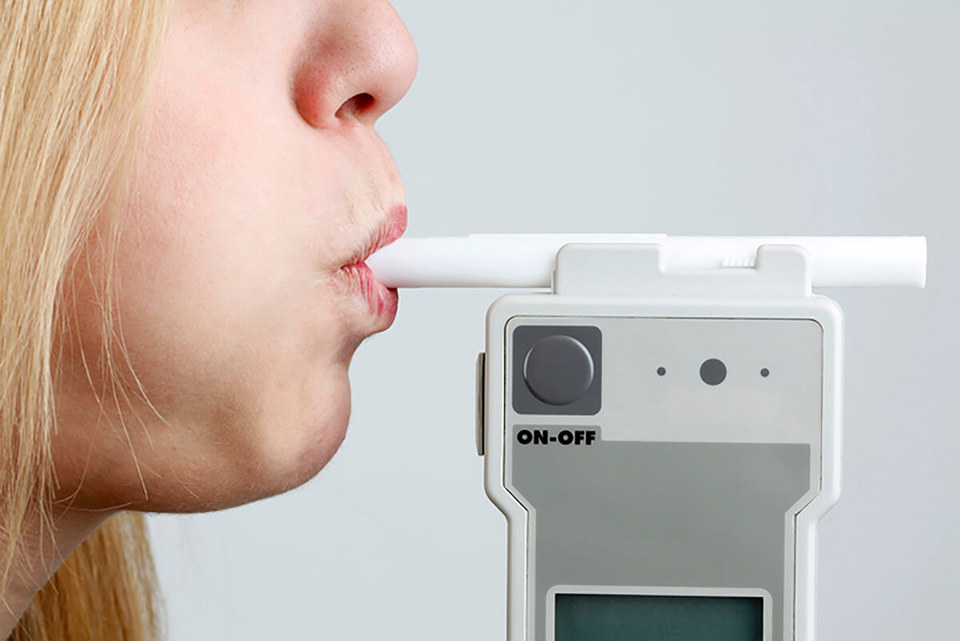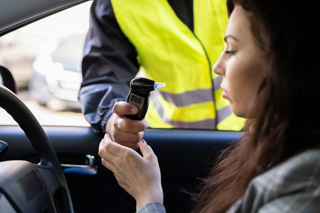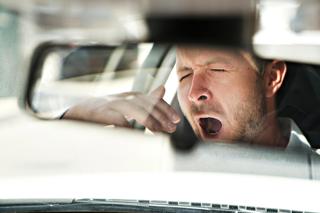The number of people caught drink driving has fallen with 6,550 people arrested during the month-long enforcement campaign over Christmas and New Year, 573 less than during the same period last year, according to figures released by the Association of Chief Police Officers (ACPO).
The drop in arrests comes despite an increase in enforcement activity over the period, with 191,040 breath tests conducted, up from 175,831 in 2012.
Figures reveal that 3.4% of those tested failed or refused the test, down from 4% in 2012. Drink driving also fell among young people, with 4.4% of under 25s failing the test, down from 5.3% in 2012.
However, road safety charities have again called for the drink-drive limit to be lowered.
RoSPA wants the Government to follow Scotland and Northern Ireland’s lead of lowering the limit from 80mg of alcohol per 100ml of blood to 50mg of alcohol per 100ml, while Brake prefers a zero tolerance approach.
Julie Townsend, deputy chief executive of Brake, said: "It is encouraging to see an increase in vital drink drive enforcement over the festive period and fewer arrests.
“However drink driving remains one of the biggest killers on our roads and we have some way to go before we persuade all drivers to commit to never driving after drinking.
“The police do great work catching these irresponsible drivers, but the government needs to give them the backing they need to do their job, by making traffic policing a national priority and adopting a zero tolerance limit. The message needs to be clear: it should be none for the road."
Kevin Clinton, RoSPA’s head of road safety, said: “While it is good news that more tests were carried out and the proportion of drink drivers was lower than the previous Christmas, it is worrying that motorists are still choosing to get behind the wheel while over the limit.
“Ministers in Scotland and Northern Ireland have already decided to lower the drink-drive limit from 80mg of alcohol per 100ml of blood to 50mg of alcohol per 100ml, and RoSPA would like the Government in Westminster to follow suit so there would be the same lower limit across the whole of the UK.”
On the drug driving front, 513 field impairment tests were conducted (a rise from 360 during the previous year’s campaign), and 143 (28%) of those tested were then arrested. The proportion of those arrested following a test rose.
Clinton continued: “The increase in the number of drivers arrested while being under the influence of drugs is also of grave concern: in Great Britain, in 2012, we know that at least 32 people were killed and nearly 250 seriously injured in road accidents involving people who were impaired by illicit or medicinal drugs.”
Enforcing drug-drive laws has been difficult because of the complicated procedure the police need to follow to prove that a driver was unfit to drive, had taken drugs and was impaired by drugs.
This will come into force once regulations setting the limit for each drug (which are currently being drafted) are introduced and will make it much easier for the police to identify and catch drug drivers.























Robert Chisholm - 27/01/2014 12:01
Anybody voicing opposition to the stance taken by BRAKE, RoSPA etc can be twisted to make it appear as though you defending those who drive whilst unfit through drink. The fact is that any limit is arbitrary because alcohol acts according to an individuals metabolism. There is little evidence to suggest that reducing the current limit will have any effect on those who choose to ignore ANY limit set - even a zero limit. What I dislike about such campaigning groups is that their over zealousness affects everybody, the vast majority of whom take a very responsible attitude towards drinking whilst driving. They will not be happy until we are all forced to drive at walking pace wrapped in cotton wool with nothing more than water as our choice of refreshment inside our bodies. Now I guess someone will be along soon to take me to task using any number of statistics to demonstrate the error of my ways and irresponsibility, whilst ignoring the one that they wouldn't use i.e. the percentage of people who have ever had a drink within the current limits and managed to get home without any sort of incident at all, no matter their mode of transport. It wouldn't surprise me if someone from one of these organisations even suggested that I must be a serial offender and my comments are proving such. In my opinion the current limit is a sensible one. The punishment should be the deterrent, and may be it's that which should be looked at. How about a minimum 3yr driving ban instead?